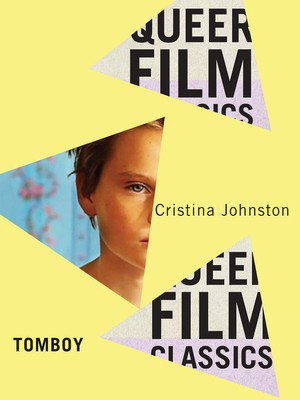
- We will send in 10–14 business days.
- Author: Cristina Johnston
- Publisher: McGill-Queen's University Press
- ISBN-10: 0228023769
- ISBN-13: 9780228023760
- Format: 14.7 x 20.1 x 1 cm, minkšti viršeliai
- Language: English
- SAVE -10% with code: EXTRA
Reviews
Description
Céline Sciamma's 2011 film Tomboy is the central work in the French filmmaker's coming-of-age trilogy. Bracketed between La Naissance des pieuvres / Waterlilies (2007), an examination of girlhood and teenage desire, and the 2014 film Bande de filles / Girlhood, about the lives of a group of Black girls in their late teens living in the Paris suburbs, Tomboy is a quiet, understated examination of gender and queer selfhood amidst the shifting sands of late childhood and early adolescence. Tomboy is an intimate and luminous film, tender but stark, and never sentimental. Written, cast, and filmed in a matter of months, it centers on the experiences and burgeoning friendships of a ten-year-old-child who moves to a new town during the summer holidays. First introducing themself as Mikaël, they are, we later learn, Laure to their parents and younger sister. Sciamma's film is not interested in why the character is passing but in how. Cristina Johnston focuses on specific elements of Mikaël/Laure's haptic and spatial experience, showing how the filmmaker's signature engagement with surfaces and textures allows queer potentialities to unfold organically. While Johnston centres her analysis on Tomboy, she also connects the film to broader themes within Sciamma's trilogy, public reception of the films, and the significance of Sciamma's identity as a queer director. Ultimately the book offers insight into a film that deserves to be watched and appreciated for its nuanced portrayal of childhood, queerness, and passing as experience rather than ideology.
- Author: Cristina Johnston
- Publisher: McGill-Queen's University Press
- ISBN-10: 0228023769
- ISBN-13: 9780228023760
- Format: 14.7 x 20.1 x 1 cm, minkšti viršeliai
- Language: English English
Céline Sciamma's 2011 film Tomboy is the central work in the French filmmaker's coming-of-age trilogy. Bracketed between La Naissance des pieuvres / Waterlilies (2007), an examination of girlhood and teenage desire, and the 2014 film Bande de filles / Girlhood, about the lives of a group of Black girls in their late teens living in the Paris suburbs, Tomboy is a quiet, understated examination of gender and queer selfhood amidst the shifting sands of late childhood and early adolescence. Tomboy is an intimate and luminous film, tender but stark, and never sentimental. Written, cast, and filmed in a matter of months, it centers on the experiences and burgeoning friendships of a ten-year-old-child who moves to a new town during the summer holidays. First introducing themself as Mikaël, they are, we later learn, Laure to their parents and younger sister. Sciamma's film is not interested in why the character is passing but in how. Cristina Johnston focuses on specific elements of Mikaël/Laure's haptic and spatial experience, showing how the filmmaker's signature engagement with surfaces and textures allows queer potentialities to unfold organically. While Johnston centres her analysis on Tomboy, she also connects the film to broader themes within Sciamma's trilogy, public reception of the films, and the significance of Sciamma's identity as a queer director. Ultimately the book offers insight into a film that deserves to be watched and appreciated for its nuanced portrayal of childhood, queerness, and passing as experience rather than ideology.


Reviews